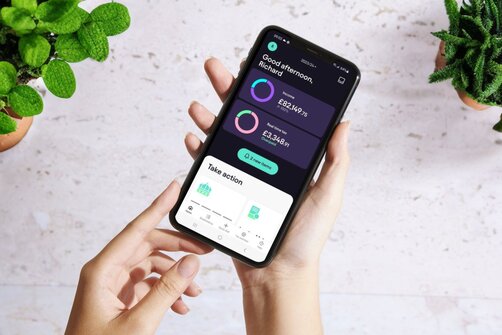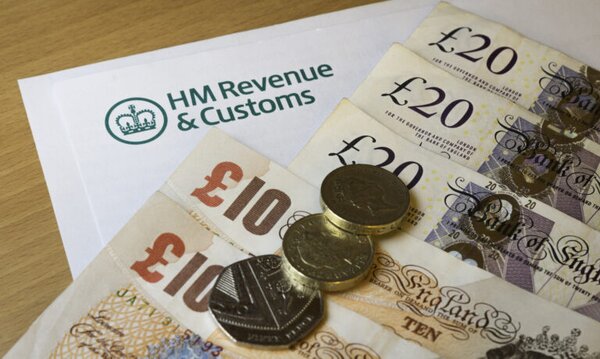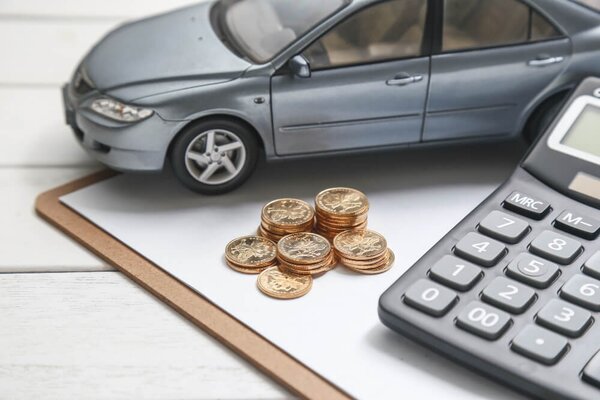Understanding Personal Items vs Reselling for Profit

When it comes to online sales, distinguishing between personal items and reselling for profit is crucial in the eyes of HMRC. Understanding this difference can significantly impact how you report your earnings and the taxes you owe. Reporting online sales properly ensures compliance with tax laws and avoids potential fines or penalties. With more people turning to online platforms for selling items, it's essential to know the tax implications and procedures involved.
If you’re an individual selling personal items occasionally, the tax rules are different from someone running a business through reselling for profit. This guide will help you navigate through these differences and explain how to report your online sales appropriately. When in doubt, using tools like the Pie Tax App and consulting with tax experts can greatly simplify the process.
Personal Items
Personal items are those that you own and use personally before selling them. These could include clothing, electronics, or household goods. Generally, selling personal items does not incur tax if done infrequently and below a certain profit threshold.


Reselling for Profit
Reselling items for profit means you purchase goods explicitly to sell at a higher price, making a profit from the transactions. This is considered a trade, and any profits are subject to income tax, which must be reported to HMRC.

£1,000 is the HMRC trading and property allowance threshold for tax-free earnings from selling personal items annually.

11 days is the shift in the start of the UK tax year due to the calendar change in 1752.

Reporting Sales of Personal Items
Accurately reporting the sale of personal items involves keeping detailed records of all transactions. Generally, if you’re selling personal belongings occasionally and do not exceed the £1,000 threshold, you are not required to report these earnings. However, maintaining receipts and documentation is advised in case of any future inquiries by HMRC.
For those whose sales do exceed the threshold or are frequent sellers, it's crucial to keep comprehensive records of all sales, costs, and any other relevant information. Using the Pie Tax App can help streamline this process, ensuring all your documents are in order and accessible.
Reporting Reselling for Profit
Reselling for profit requires a more detailed approach to tax reporting. As a trader, you must register your business with HMRC and complete a self-assessment tax return annually. This return will detail all your income, expenses, and profits from your reselling activities. Keeping accurate records is essential to calculate your taxable income correctly.
When reselling, expenses such as purchase costs, shipping fees, and any other business-related expenses can be deducted from your total revenue to determine your taxable profit. The Pie Tax App can help track these expenses and simplify your tax return process.

Helpful Tax Tips

Keep records of all transactions to simplify tax reporting and avoid errors. Maintain detailed & accurate documentation regularly.Keep track

Use tools like the Pie Tax App to track income & expenses efficiently, ensuring accurate self-assessment returns.Utilise tools

Consult with expert tax assistants on the Pie app for personalised advice and guidance on your specific tax situation.Seek professional help

Fun Facts
Did you know that the UK tax year runs from 6 April to 5 April of the following year? This unusual date range dates back to the change from the Julian to the Gregorian calendar in 1752, which shifted the start of the tax year by 11 days.
Deciding if You're a Trader

Determining whether you’re a trader involves evaluating your activities and intent. If you’re selling items casually and infrequently, you're likely not a trader. However, if you purchase items specifically to resell them regularly and for profit, HMRC will consider you a trader. This classification comes with additional responsibilities, including registering as self-employed and submitting annual tax returns.
Professional advice can be invaluable in this situation. The Pie Tax App offers access to professional tax assistants who can provide tailored advice based on your activities, ensuring you remain compliant with HMRC regulations.

To determine if your online sales classify you as a trader, pay attention to the frequency and nature of your transactions. If you’re consistently buying and selling items intending to make a profit, HMRC will likely view you as trading.Trading or Not?

Keeping up-to-date with changes in tax regulations and policies is crucial for maintaining compliance. Regularly review updates from HMRC and seek advice on how these changes may impact your tax obligations. Staying informed will help you adapt to new requirements.Casual Selling
Summary
A P87 form is a document used to request tax relief on work-related expenses for employees who are not registered under Self Assessment. To use a P87 form to claim tax rebates, you must complete the form and submit it to HMRC. Alternatively, self-assessment tax returns can also be used to claim tax rebates for work-related expenses.
Self-assessment tax returns are typically used by self-employed taxpayers or those with more complex tax situations. Regardless of whether you’re an employee or self-employed, it’s essential to choose the appropriate method for claiming your tax rebate and follow the necessary steps to ensure your claim is processed promptly.
Frequently Asked Questions
Do I need to pay tax on selling personal items online?
Typically, you don't need to pay tax on occasional sales of personal items if your total annual earnings are below £1,000.
How do I register as self-employed for reselling?
You can register as self-employed through the HMRC website. You’ll need to provide personal details and information about your business activities.
What records should I keep for tax reporting?
Keep all receipts, records of sales, expenses, and any relevant transaction details to ensure accurate tax reporting and compliance.
How can the Pie Tax App help me?
The Pie Tax App can track your income, expenses, and help you prepare accurate self-assessment tax returns, simplifying the tax management process.
Can I get help from tax experts?
Yes, the Pie Tax App provides access to expert tax assistants who can offer personalised advice and guidance on your tax situation.











